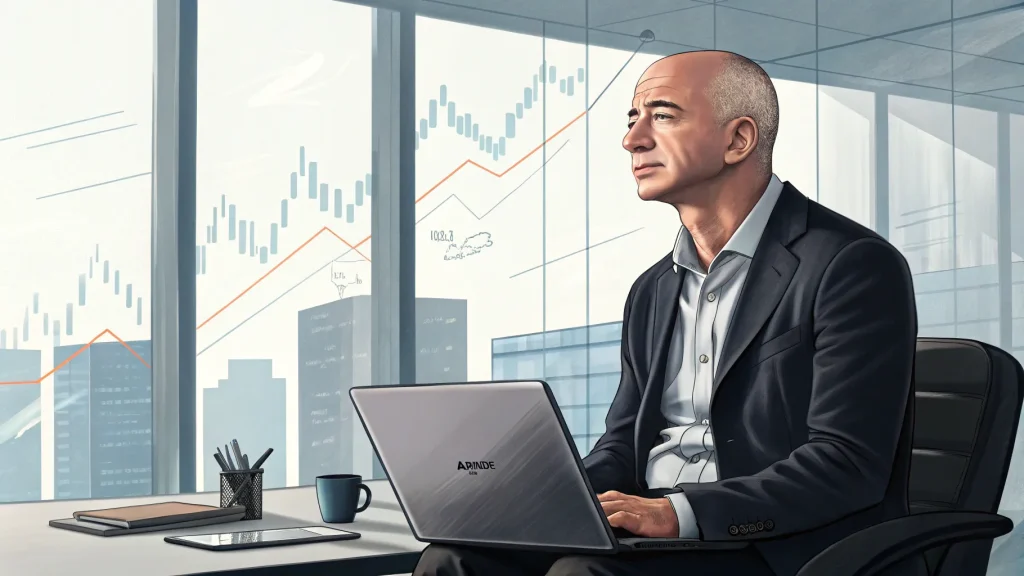Bezos Offloads Amazon Shares as Tariffs Loom

Jeff Bezos, the founder of Amazon, announced the sale of his company shares shortly after Amazon's first-quarter financial release indicated that the retail behemoth might face difficulties due to possible tariff issues.
Investors and financial experts have taken notice of Jeff Bezos' recent share sales in Amazon. These transactions occurred shortly after the release of Amazon's latest financial reports, which revealed worries over potential economic instability. Although the precise number of stocks disposed was submitted to regulators, this action signifies an important monetary choice made by the firm’s original visionary leader.
Amazon’s First-Quarter Performance
Amazon's latest financial statement revealed steps being taken to prepare for potential trade disruptions. Although robust in several areas, the Q1 findings contained warnings regarding how tariffs could affect the firm’s activities and logistics network.
During the earnings call, the company’s leadership team tackled these issues, admitting that potential shifts in international trade policies might impact their pricing approaches and profit margins in future quarters. Given Amazon’s vast worldwide presence, it is especially susceptible to alterations in trade regulations.
Tariff Implications for E-Commerce
The tariff scenario poses multiple difficulties for Amazon and other leading retailers:
- Increased costs for imported goods that may need to be absorbed or passed to consumers
- Supply chain disruptions that could affect product availability
- Potential changes for production and distribution approaches
Market experts believe that Amazon has been making efforts to expand its range of suppliers in preparation for potential ongoing challenges. trade tensions . The company has reportedly been shifting some procurement away from heavily tariffed regions while building more flexible logistics networks .
Investor Reaction
Wall Street has reacted inconsistently to both the earnings report and Bezos' stock sale. investors view the founder’s decision to sell shares as a routine portfolio adjustment, while others interpret it as a response to the company’s more cautious outlook.
Executive stock sales typically attract significant attention, however, the timing close to an earnings announcement that underscored particular economic worries renders this transaction especially notable," remarked a financial analyst. financial analyst who follows Amazon closely.
Amazon stock experienced modest volatility following the dual news of the earnings report and Bezos’ stock sale. However, the company’s share price has remained relatively stable compared to broader market movements.
Looking Forward
In spite of the ambiguity around tariffs, Amazon keeps pouring resources into expansion efforts such as artificial intelligence, cloud computing, and logistics networks. They remain committed to their overarching strategic plan. remains unchanged despite short-term economic headwinds.
Financial experts point out that Amazon has weathered similar challenges in the past. The company has demonstrated resilience through various economic cycles,” noted an industry observer. Their ability to adapt quickly to changing market conditions has been a key strength.
For consumers, the impact of these business developments may eventually be felt through subtle changes in product pricing or availability. However, Amazon has historically worked to shield customers from supply chain disruptions.
As global trade policies evolve, Amazon’s response to tariff-related challenges will likely serve as a bellwether for the broader retail and technology sectors. The company’s size and market This position makes it susceptible to economic fluctuations but also equips it with the ability to adjust to evolving circumstances.
The post Bezos Offloads Amazon Shares Due to Worries Over Tariffs appeared first on News in A Day .

No comments